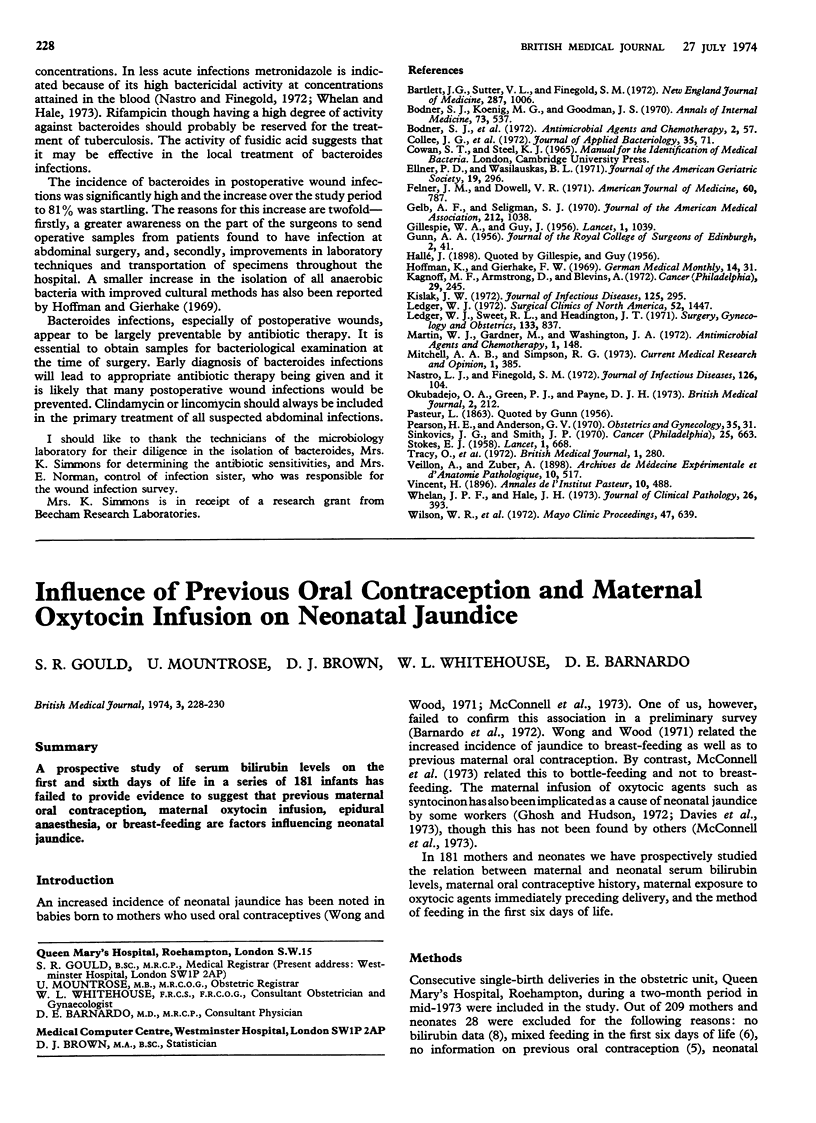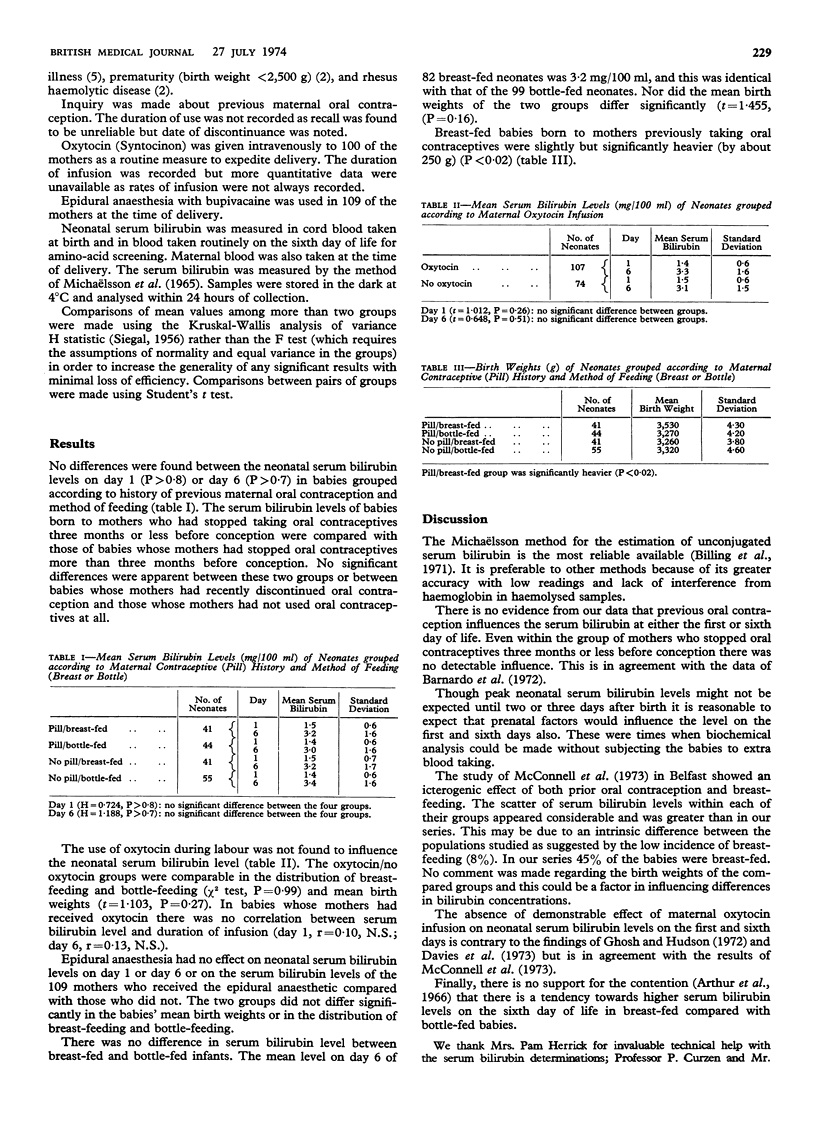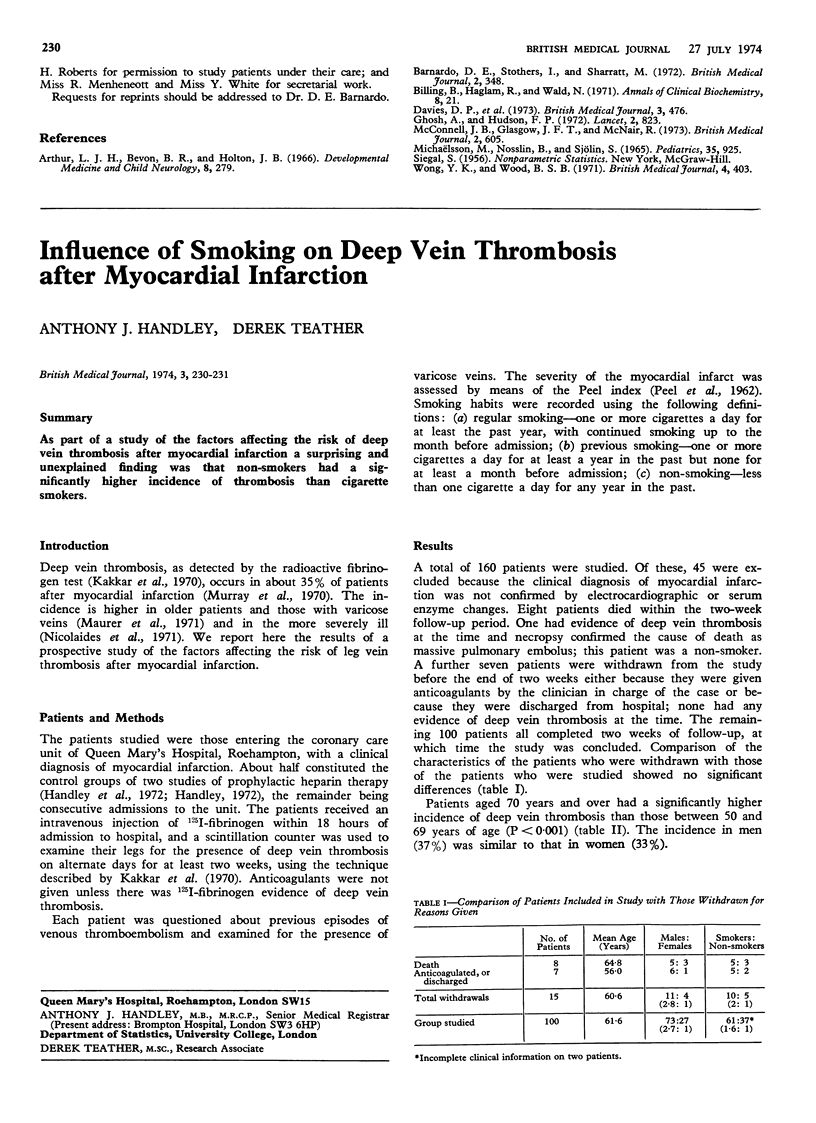Abstract
A prospective study of serum bilirubin levels on the first and sixth days of life in a series of 181 infants has failed to provide evidence to suggest that previous maternal oral contraception, maternal oxytocin infusion, epidural anaesthesia, or breast-feeding are factors influencing neonatal jaundice.
Full text
PDF


Selected References
These references are in PubMed. This may not be the complete list of references from this article.
- Arthur L. J., Bevan B. R., Holton J. B. Neonatal hyperbilirubinaemia and breast feeding. Dev Med Child Neurol. 1966 Jun;8(3):279–284. doi: 10.1111/j.1469-8749.1966.tb01748.x. [DOI] [PubMed] [Google Scholar]
- Barnardo D., Stothers I., Sharratt M. Breast-milk jaundice and the pill. Br Med J. 1972 May 6;2(5809):348–348. doi: 10.1136/bmj.2.5809.348. [DOI] [PMC free article] [PubMed] [Google Scholar]
- Ghosh A., Hudson F. P. Oxytocic agents and neonatal hyperbilirubinaemia. Lancet. 1972 Oct 14;2(7781):823–823. doi: 10.1016/s0140-6736(72)92182-4. [DOI] [PubMed] [Google Scholar]
- MICHAUELSSON M., NOSSLIN B., SJOELIN S. PLASMA BILIRUBIN DETERMINATION IN THE NEWBORN INFANT. A METHODOLOGICAL STUDY WITH SPECIAL REFERENCE TO THE INFLUENCE OF HEMOLYSIS. Pediatrics. 1965 Jun;35:925–931. [PubMed] [Google Scholar]
- Wong Y. K., Wood B. S. Breast-milk jaundice and oral contraceptives. Br Med J. 1971 Nov 13;4(5784):403–404. doi: 10.1136/bmj.4.5784.403. [DOI] [PMC free article] [PubMed] [Google Scholar]


